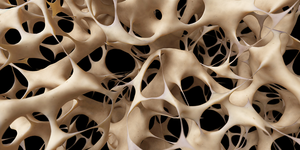Sandoz, the generics division of Novartis, is planning to start a phase III trial for its candidate denosumab biosimilar GP2411 in patients with post-menopausal osteoporosis in collaboration with Germany-based biosimilars maker Hexal.
Sandoz to start phase III trial for denosumab biosimilar
Biosimilars/News
|
Posted 26/07/2019
 0
Post your comment
0
Post your comment

Denosumab is a humanized monoclonal antibody that is an inhibitor of the receptor activator of nuclear factor kappa-B ligand (RANKL), which works by preventing the development of osteoclasts which are cells that break down bone. It is used for the treatment of osteoporosis, treatment-induced bone loss, metastases to bone and giant cell tumour of bone.
The phase III trial is a multicentre, randomized, parallel arm, double-blind study with a total duration up to 82 weeks. Approximately 522 postmenopausal patients with osteoporosis will be randomized at the beginning of Treatment Period 1 (Baseline to Week 52) to receive two subcutaneous (60 mg/mL) doses every 6 months of either GP2411 or the EU-authorized originator Prolia (denosumab).
At the beginning of Treatment Period 2 (Week 52 to Week 78) patients in Treatment Period 1 Prolia group will be re-randomized 1:1 to either continue with a third dose of EU-authorized Prolia or will be transition to GP2411. All patients in the GP2411 group will continue the treatment with a third dose of GP2411.
The primary endpoints of the study are:
• per cent change from baseline (%CfB) in lumbar spine bone mineral density at Week 52
• area under the effect versus time curve (AUEC) after first dose, per cent change from baseline in serum Collagen C-telopeptide (CTX) at Week 52
• serum PK (pharmacokinetics) parameter AUCinf after first dose at Week 52
• serum PK parameter Cmax after first dose at Week 52
Secondary endpoints include occurrence of adverse events, serious adverse events and anti-drug antibodies (ADAs).
The trial is expected to be completed in July 2022.
Australian biologicals company NeuClone is also working on a denosumab biosimilar [1]. Phase III trials for denosumab products have also been started by Iran-based AryoGen Pharmed and by India-based Intas Pharmaceuticals.
Editor’s comment
It should be noted that ‘similar biologics’ approved in India and ‘biogenerics’ approved in Iran might not have been authorized following as strict a regulatory process as is required for approval of biosimilars in the European Union. The EMA (European Medicines Agency) regulatory requirements ensure the same high standards of quality, safety and efficacy for biosimilars as for originator biologicals, and also include a rigorous comparability exercise with the reference product.
Related article
Biosimilars of denosumab
Reference
1. GaBI Online - Generics and Biosimilars Initiative. Denosumab biosimilar being developed in Australia [www.gabionline.net]. Mol, Belgium: Pro Pharma Communications International; [cited 2019 Jul 26]. Available from: www.gabionline.net/Biosimilars/News/Denosumab-biosimilar-being-developed-in-Australia
Permission granted to reproduce for personal and non-commercial use only. All other reproduction, copy or reprinting of all or part of any ‘Content’ found on this website is strictly prohibited without the prior consent of the publisher. Contact the publisher to obtain permission before redistributing.
Copyright – Unless otherwise stated all contents of this website are © 2019 Pro Pharma Communications International. All Rights Reserved.
Source: clinicaltrials.gov
Research
Reaching ESG goals in pharmaceutical development
What is the future for the US biosimilar interchangeability designation
General
Samsung Bioepis wins Pyzchiva case; Regeneron patent rulings threaten foreign biosimilars
Chinese biosimilars go global: growth, partnerships, and challenges
Most viewed articles
The best selling biotechnology drugs of 2008: the next biosimilars targets
Global biosimilars guideline development – EGA’s perspective
Related content
FDA approves Poherdy (first interchangeable pertuzumab) and Armlupeg (pegfilgrastim) biosimilars
EMA recommends approval for insulin glargine biosimilar Ondibta and denosumab biosimilar Osqay
FDA approves denosumab biosimilars Osvyrti and Jubereq, Boncresa and Oziltus
FDA approves aflibercept biosimilar Eydenzelt and label expansion for adalimumab biosimilar Yuflyma
FDA approves Poherdy (first interchangeable pertuzumab) and Armlupeg (pegfilgrastim) biosimilars

Biosimilars/News Posted 27/01/2026
EMA recommends approval for insulin glargine biosimilar Ondibta and denosumab biosimilar Osqay

Biosimilars/News Posted 16/01/2026
FDA approves denosumab biosimilars Osvyrti and Jubereq, Boncresa and Oziltus

Biosimilars/News Posted 07/01/2026
FDA approves aflibercept biosimilar Eydenzelt and label expansion for adalimumab biosimilar Yuflyma

Biosimilars/News Posted 05/12/2025
The best selling biotechnology drugs of 2008: the next biosimilars targets






Post your comment